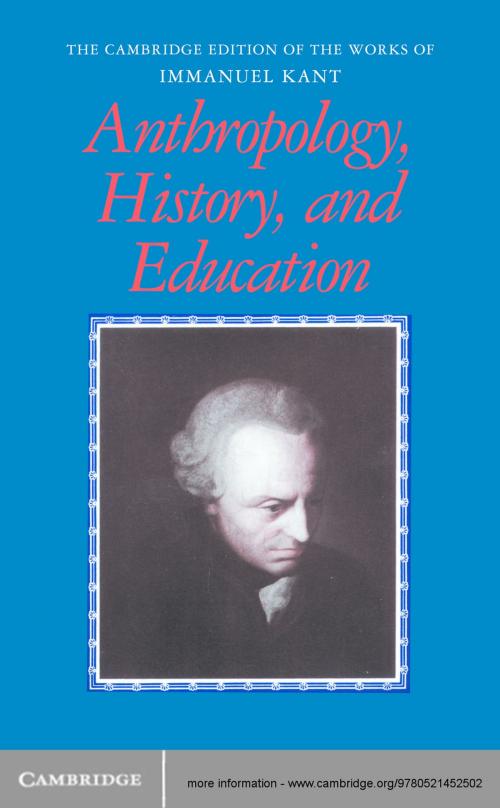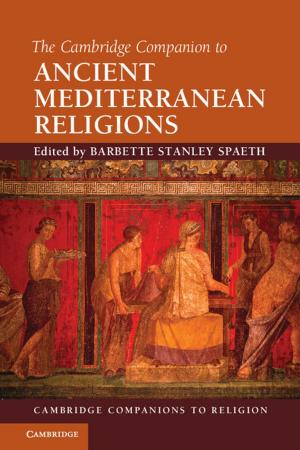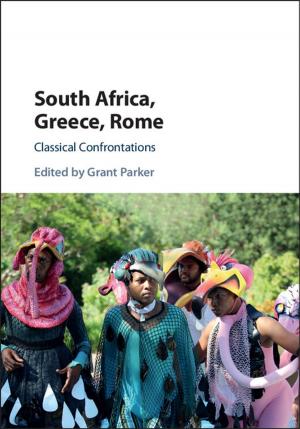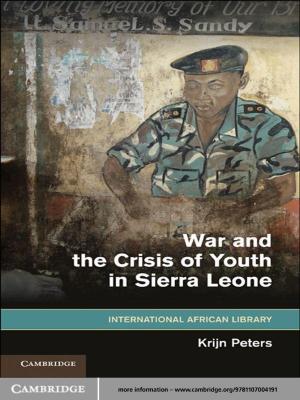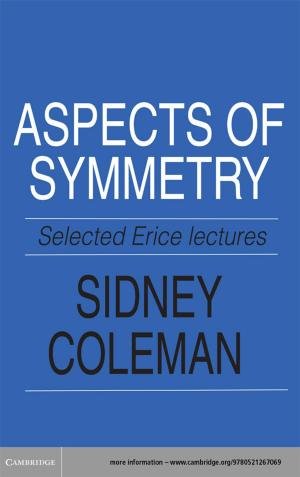Anthropology, History, and Education
Nonfiction, Religion & Spirituality, Philosophy, Reference, Science & Nature, Science| Author: | Immanuel Kant, Robert B. Louden, Günter Zöller | ISBN: | 9781107084513 |
| Publisher: | Cambridge University Press | Publication: | November 29, 2007 |
| Imprint: | Cambridge University Press | Language: | English |
| Author: | Immanuel Kant, Robert B. Louden, Günter Zöller |
| ISBN: | 9781107084513 |
| Publisher: | Cambridge University Press |
| Publication: | November 29, 2007 |
| Imprint: | Cambridge University Press |
| Language: | English |
Anthropology, History, and Education, first published in 2007, contains all of Kant's major writings on human nature. Some of these works, which were published over a thirty-nine year period between 1764 and 1803, had never before been translated into English. Kant's question 'What is the human being?' is approached indirectly in his famous works on metaphysics, epistemology, moral and legal philosophy, aesthetics and the philosophy of religion, but it is approached directly in his extensive but less well-known writings on physical and cultural anthropology, the philosophy of history, and education which are gathered in the present volume. Kant repeatedly claimed that the question 'What is the human being?' should be philosophy's most fundamental concern, and Anthropology, History, and Education can be seen as effectively presenting his philosophy as a whole in a popular guise.
Anthropology, History, and Education, first published in 2007, contains all of Kant's major writings on human nature. Some of these works, which were published over a thirty-nine year period between 1764 and 1803, had never before been translated into English. Kant's question 'What is the human being?' is approached indirectly in his famous works on metaphysics, epistemology, moral and legal philosophy, aesthetics and the philosophy of religion, but it is approached directly in his extensive but less well-known writings on physical and cultural anthropology, the philosophy of history, and education which are gathered in the present volume. Kant repeatedly claimed that the question 'What is the human being?' should be philosophy's most fundamental concern, and Anthropology, History, and Education can be seen as effectively presenting his philosophy as a whole in a popular guise.
